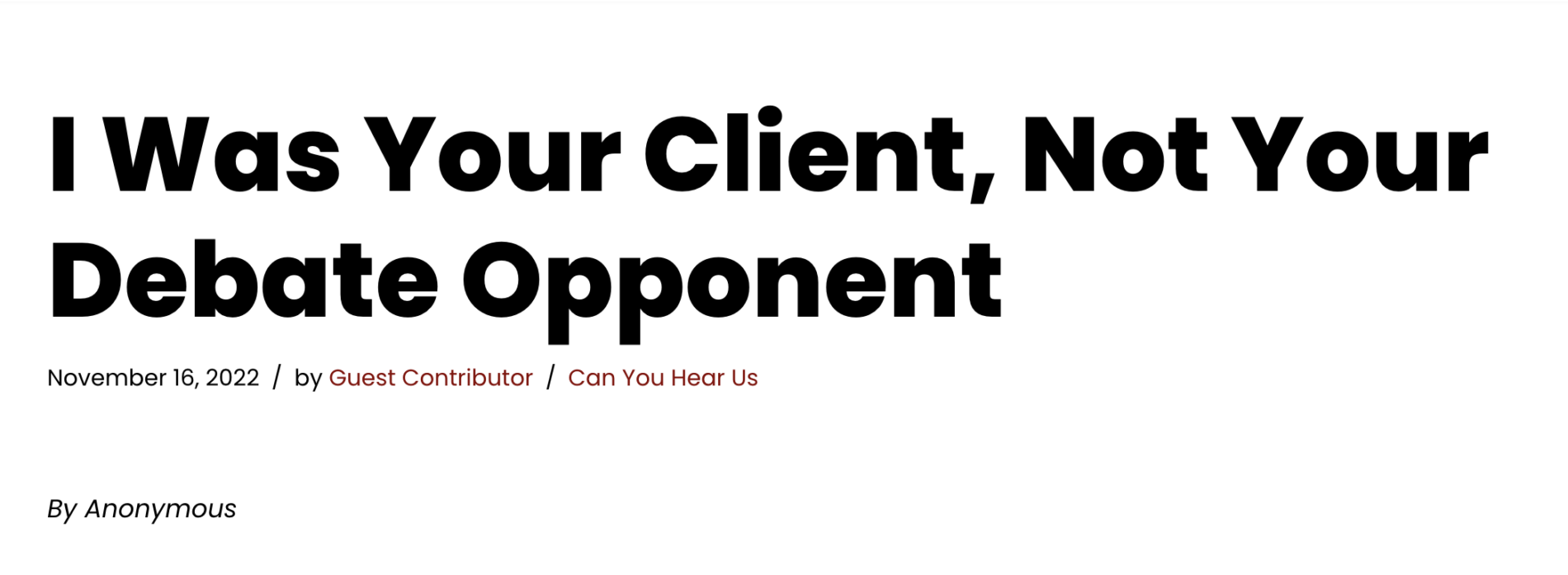
One of the qualities that overwhelmingly characterizes the attitude adopted by sexologists advocating either conversion therapy for trans children or for normalization and destigmatization of adult sexual interest in children (or both) is a pervasive, deeply troubling callous indifference toward the young person’s experience of acute distress. We’ve be given permission to share this article from HealthLiberationNow! by an anonymous former “conversion therapy” client of James Cantor, a prominent sexologist and defender of Ray Blanchard’s widely discredited “transsexual typology.” We ask what kind of therapist asks a nervous and uncertain young person “how did you feel the first time you saw a penis,” what kind of therapist would coerce their patient into locking themselves into a sense of self they were not comfortable with? If the goal of “gender explorative therapy” were genuinely to explore what is best for the patient, what is the therapeutic value of browbeating them about their clothes?
What stands out to me is role of the “expert” as epistemic authority, positioned as possessing unique access to the capacity to uncover the “real truth” about the patient’s personhood, interiority, and body. The patient, rather than being understood as a subject of their own experiences, is relegated to object: object of knowledge, object of investigation, object of dissection, object of the “expert’s” interpretation first and foremost. I cannot claim to know exactly what kinds of thoughts go through James Cantor’s mind — and what a dreadful fate it would be if I had to know such things — but in my opinion, Cantor treats his “patient” like a debate opponent because he is only interested in establishing himself as an epistemic authority with the right to define and determine the “truth,” over and above the former client’s right to speak for and define themselves. In the excerpt below, for example, notice how he dismisses the patient based on the authoritative status of his existing knowledge — whether he has seen literature on the subject. He questions the patient’s credibility as a reliable witness to their own life, their ability to accurately report their own previous diagnosis. To me, what he exhibits is a total indifference and incuriosity about them, about their interior world, their feelings or concerns, and he does not bother to ask about them about these things, because to ask would be to admit the patient holds a kind of access to the contents of their own mind, to the truth about their own feelings, their subjective experience, which he lacks. But that is what he is supposed to “diagnose;” their interior world is supposed to be his domain of privileged expert knowledge.
Excerpt:
A different time, I expressed concern about an article I saw. It was about transness as a comorbidity with the mental illness I have, and I said that I was concerned that I had it, since the symptoms listed on the article were deeply familiar to me. He did not bother to ask me why I felt that way, or whether I thought that my illness might have something to do with my gender. Instead, he was quick to dismiss my concerns because he had not seen any scholarly literature about it. He asked if I was sure that I even had that illness in the first place. I was taken aback by the implication that I was misdiagnosed or lying and I did not prompt him to elaborate.
You can read the whole article here: https://healthliberationnow.com/2022/11/16/i-was-your-client-not-your-debate-opponent/
